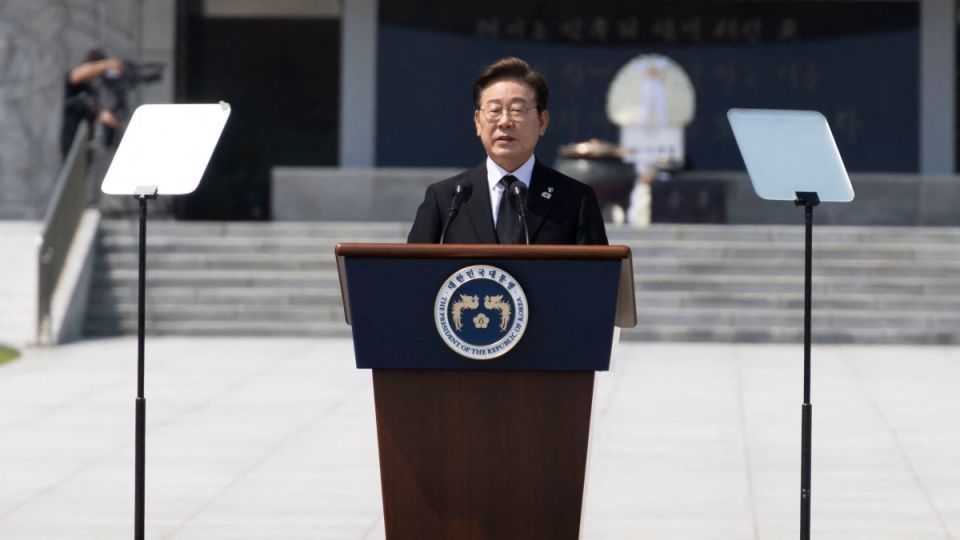June 12, 2025
SEOUL – President Lee Jae-myung on Wednesday pledged to map out various incentives for listed companies on South Korean stock markets to pay out more dividends, saying the bullish stock market could contribute to boosting the national economy.
“In other countries, people buy blue-chip stocks and use the dividends paid from them to supplement their living expenses, which boosts domestic consumption and contributes to a virtuous cycle in the economy, but (companies in) our country are not willing to pay dividends,” said Lee during a meeting with representatives of the Korea Exchange, South Korea’s main stock market operator, which is also tasked with market oversight.
President Lee also said South Korean stocks tend to lag behind in dividend payments compared to other countries, such as China.
“There must be various reasons for that. So we are preparing for tax code reforms and policy improvements to boost dividends,” Lee said.
“If equities become an alternative investment destination that people find as attractive as real estate, then by allowing people to get more dividends and make money to cover living costs, companies will find it easier to attract capital, and a virtuous cycle will be created,” he added.
The remarks came as South Korea’s stock market hit a three-year high, extending a winning streak that started with his inauguration the previous week.
Meeting the KRX representatives, including 55 rank-and-file employees of the bourse operator, Lee, who took office on June 4, said restoring transparency in South Korea’s capital market would be his priority.
He stressed the need for stronger market monitoring to tackle unfair trading practices — namely, insider trading, market manipulation and market disruption.
“At the core of a capitalist economy lies the stock market,” Lee said. “The most important task is to resolve, or at least alleviate, the unfairness and opacity of the stock market.”
Later in the afternoon, a presidential spokesperson said in a briefing that Lee urged the Korea Exchange to take tougher actions against unfair trading by implementing a “one strike, you’re out” policy for acts such as stock manipulation.
The government would seek measures to recover illicit gains through fines imposed on the violators, Lee’s spokesperson Kang Yu-jung told reporters. Kang also said leniency in market oversight has so far left the bourse more prone to illicit activities, adding nearly 30 percent of unfair traders were repeat offenders.
During his presidential election campaign, Lee pledged to improve market liquidity for stock investors and come up with measures to better distribute profits to shareholders. Lee said then that South Korea’s stock market, currently categorized as a developing market, would be included in the MSCI developed market index under his presidency if elected president.
Lee, the former leader of what was then the main opposition party, has also called for a legal revision that would require boardrooms at South Korean companies to fulfill their fiduciary duty not only to their companies but also to their shareholders.
The Kospi — South Korea’s benchmark stock index — hit its highest point in about three years and five months, continuing its winning streak for a fifth consecutive trading day since Lee’s inauguration. The market did not operate on Friday due to the observance of National Memorial Day.
The Kospi closed at 2,907.04 points Wednesday, up 1.2 percent from the previous day’s close, and its market cap came to 2,378.9 trillion won ($1.73 trillion). Over the first week of Lee’s presidency, the index had risen 7.7 percent.
Foreign investor influx also continued for the past five trading days, with foreign net inflow from June 4 to Wednesday totalling 4.2 trillion won.


